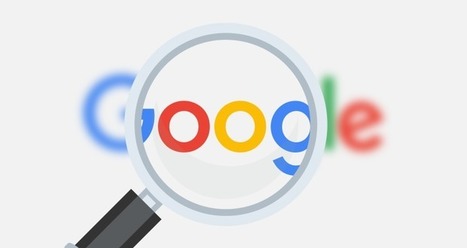Technology is the proverbial double-edged sword. And an experimental European research project is ensuring this axiom cuts very close to the industry’s bone indeed by applying machine learning technology to critically sift big tech’s privacy policies — to see whether AI can automatically identify violations of data protection law.
The still-in-training privacy policy and contract parsing tool — which is called ‘Claudette‘: Aka (automated) clause detector — is being developed by researchers at the European University Institute in Florence.
They’ve also now got support from European consumer organization BEUC — for a ‘Claudette meets GDPR‘ project — which specifically applies the tool to evaluate compliance with the EU’s General Data Protection Regulation.
Early results from this project have been released today, with BEUC sayingthe AI was able to automatically flag a range of problems with the language being used in tech T&Cs.
The researchers set Claudette to work analyzing the privacy policies of 14 companies in all — namely: Google, Facebook (and Instagram), Amazon, Apple, Microsoft, WhatsApp, Twitter, Uber, AirBnB, Booking, Skyscanner, Netflix, Steam and Epic Games — saying this group was selected to cover a range of online services and sectors.
And also because they are among the biggest online players and — I quote — “should be setting a good example for the market to follow”. Ehem, should.



 Your new post is loading...
Your new post is loading...








Technology is the proverbial double-edged sword. And an experimental European research project is ensuring this axiom cuts very close to the industry’s bone indeed by applying machine learning techniques to critically sift big tech’s privacy policies — to see whether AI can automatically identify violations of data protection law. The still-in-training privacy policy and contract parsing tool — which is called ‘Claudette‘: Aka (automated) clause detector — is being developed by researchers at the European University Institute in Florence. They’ve also now got support from European consumer organization BEUC — for a ‘Claudette meets GDPR‘ project — which specifically applies the tool to evaluate compliance with the EU’s General Data Protection Regulation. Early results from this project have been released today, with BEUC saying the AI was able to automatically flag a range of problems with the language being used in tech T&Cs.
The researchers set Claudette to work analyzing the privacy policies of 14 companies in all — namely: Google, Facebook (and Instagram), Amazon, Apple, Microsoft, WhatsApp, Twitter, Uber, Airbnb, Booking, Skyscanner, Netflix, Steam and Epic Games — saying this group was selected to cover a range of online services and sectors. And also because they are among the biggest online players and — I quote — “should be setting a good example for the market to follow”. Ehem, should. The AI analysis of the policies was carried out in June after the update to the EU’s data protection rules had come into force. The regulation tightens requirements on obtaining consent for processing citizens’ personal data by, for example, increasing transparency requirements — basically requiring that privacy policies be written in clear and intelligible language, explaining exactly how the data will be used, in order that people can make a genuine, informed choice to consent (or not consent). In theory, all 15 parsed privacy policies should have been compliant with GDPR by June, as it came into force on May 25. However, some tech giants are already facing legal challenges to their interpretation of ‘consent’. And it’s fair to say the law has not vanquished the tech industry’s fuzzy language and logic overnight. Where user privacy is concerned, old, ugly habits die hard, clearly. But that’s where BEUC is hoping AI technology can help. It says that out of a combined 3,659 sentences (80,398 words) Claudette marked 401 sentences (11.0%) as containing unclear language, and 1,240 (33.9%) containing “potentially problematic” clauses or clauses providing